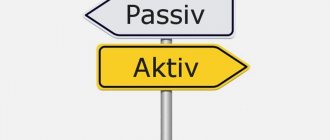Why don't they like collectors? Their work is associated with one of the most unpleasant events - paying off debts on loans and borrowings. Even if collectors act strictly within the law, they will pester the debtor by phone, come home, and send letters reminding them of the payment.
3655
2
It is extremely difficult to get rid of such pressure, especially if you cannot resist psychological pressure or cope with a stressful situation. In this article we will tell you how to deal with debt collectors using legal methods and where to seek protection from debt collectors.
Is the activity of debt collectors legal?
Yes, it is legal, although you will not find any direct mention of “collection activities” in any regulatory act. The legislator politely refers to the work of collection companies as the activity of collecting debts from individuals. This is exactly what Law No. 230-FZ says, which provides for the basic rights and responsibilities of collectors.
Collection agencies do not issue credits and loans, but can acquire rights of claim under assignment or enter into an agency agreement with a credit institution or microfinance organization.
(17 kb)
Important nuances associated with debt collection by collection companies:
- transfer of debt by assignment
means that the debtor will bear all obligations to collectors (in this case, the bank will no longer be able to demand repayment of the loan and interest); - activities within the framework of an agency agreement
are essentially mediation, since collection firms act in the interests of a bank or microfinance organization; - if the collection bureau does not have any documents at all
confirming the grounds for collection, their work may fall under the elements of a crime of the Criminal Code of the Russian Federation.
The defaulter is necessarily notified of the sale of the loan debt, but his consent or permission to enter into an assignment is not asked. Usually, in the agreement or in the rules/conditions for granting a loan posted on the website of a bank or microfinance organization, it states “the client agrees to transfer the debt to third parties and involve 3 parties in collection” or even “the borrower has the right to refuse to assign the debt...”.
For example, at VTB the right to transfer debt to collectors is spelled out as follows:
But these conditions are not so easy to find on the website. Ask the manager how to refuse to sell debt when receiving a loan!
Unfortunately, few debtors read all the documents and appendices to the agreement, so many encounter calls or visits from debt collectors unexpectedly. Especially if the debtor does not receive mail. But knowing your rights, you can limit communication to a minimum, or even completely avoid contact with employees of the collection company.
To get a consultation
Ask any question about bankruptcy and receive a detailed answer. It's free.
From whom and when can collectors collect debts?
Collectors may demand repayment of a debt from a person who has never taken out a loan or a loan by mistake or through deliberately illegal actions. This happens extremely rarely, since collection companies were forced to work within the legal framework. Cases of fraud or extortion are practiced only by illegal debt collectors. It is their activities that can entail risks and threats for the debtor.
The conditions under which collection firms can begin debt collection must comply with the Civil Code of the Russian Federation and Law No. 230-FZ:
- a collection company can engage in collection if it has received a certificate and is included in the special register of the FSSP
- for this it needs to confirm compliance with many requirements, from the size of the authorized capital to civil liability insurance; - collectors can demand the return of money if they have purchased the debt from the collector (assignment), or act on his behalf under an agency agreement
- the collection company must confirm one of these grounds to the debtor upon the first application; - Debt collectors are required to take into account the restrictions of Law No. 230-FZ, existing deferments and installment plans, refusal to cooperate on the part of the debtor, a ban on any actions during bankruptcy
- the slightest deviation from the requirements of the law will be an offense, and the collection bureau may lose its certificate.
Lawyer's comment.
Only debts of individuals can be collected through debt collectors. If a debt has arisen from an individual entrepreneur in connection with business activities, the creditor can go to court and the FSSP, file for bankruptcy, but not involve collection agencies.
Also, debts arising from housing legal relations do not fall under Law No. 230-FZ. A bill on the possibility of transferring such debts to collection firms is only being considered in the State Duma of the Russian Federation.
If you owe money to a bank or microfinance organization, you can expect a visit from collectors at any time. Since July 2020, a new procedure for notifying a defaulter about the transfer of debt through the Unified Federal Register of Bankruptcy Information has come into force. But up to 30 days are given to place information in the registry, during which collectors can begin collection.
What actions of collectors are unacceptable?
The purpose of collection agencies is to collect money from the debtor. If the “client” has nothing to pay, the debt collector’s task is to create an atmosphere of constant pressure, a stressful situation. As long as such pressure is carried out within the framework of the law, there is no point in filing complaints or contacting the police.
Even a tough conversation over the phone or in person does not mean that the debt collector's actions are a violation. But, of course, if collectors are rude on the phone, you have the right to call management and ask them to reason with the employee. Read below to learn how to identify unlawful actions of a debt collector and take timely protective measures.
Psychological impact
Employees of collection firms undergo special training that allows them to obtain the necessary information from the debtor, force him to look for money or take out new loans to pay off his obligations.
This impact can be expressed in the following forms:
- regular calls, SMS, messages on social media. networks and email;
- sending written demands to the debtor’s address;
- personal meetings with the defaulter, visiting his home.
Legal advice.
You are not obligated to answer calls, text messages or any messages or letters or speak to the debt collector in person. You can safely add the numbers of collectors to blacklists, delete SMS and letters from email, and do not open the door.
However, if collection is carried out by black or gray collectors, these measures will not help. To prevent possible damage to property, life and health, even in the event of threats, submit an application to the Ministry of Internal Affairs.
Impact can be carried out within the framework of the law. To do this, the collector can artificially delay the telephone conversation, obtain the necessary information about the property and place of work of the interlocutor, force him to fully acknowledge the debt and a huge amount of interest. Such pressure can balance on the brink of threats, leading to nervous breakdowns and stress.
If you understand that you are not ready for a calm and restrained conversation, it is better to stop communication immediately.
Law No. 230-FZ allows you to submit an official refusal of any form of interaction with debt collectors. To do this, the period of delay must be at least 4 months.
(33 kb)
Physical violence and threats
Such actions are always a violation of the law and entail administrative or criminal liability.
(40 kb)
The threat can be made by telephone, in a letter, in an email message, on social networks, or in personal communication. Collectors threaten the debtor personally, his family and friends, and promise to divulge personal data or destroy property. File a police report immediately if debt collectors make threats or behave aggressively.
The application can be filled out at the nearest police station; if possible, attach evidence: audio recordings, SMS, screenshots of correspondence via the Internet, refer to witness statements.
In fact, debt collectors rarely resort to violence, since this immediately constitutes a criminal offense. To avoid such cases, we do not recommend meeting with collection firm employees one-on-one, without witnesses.
If such a meeting cannot be avoided, try not to provoke your interlocutor, and do not start giving up yourself. If possible, record the conversation. An audio or video recording will become evidence when applying to the Ministry of Internal Affairs or to court.
How to establish communication?
Psychological pressure on the debtor
Psychological pressure on the debtor is the main method used in such a case. Typically, this type of communication takes place without serious violations of the law. The citizen is simply informed that he has become unpaid. But often collectors switch to more brutal methods, taking advantage of the fact that clients are little familiar with their legal rights. How to behave under such circumstances?
First you need to check whether the statute of limitations on the debt has expired. If it was less than 36 months, then you need to call the bank employees and ask who exactly is now dealing with this issue.
The next step is to send a corresponding request to the collection agency. Its employees must present official documents that generally allow them to engage in the relevant activity. Until this is done, it is recommended to stop any communication.
It is worth telling the lender that all conversations are being recorded. But you should refuse to transfer personal information in any case.
Especially it concerns:
- Relatives' phone numbers.
- Addresses of loved ones.
- Amount of income.
- Places of work.
The main thing during such conversations is to remain calm. There is no need to make excuses or persuade collectors to do this and not otherwise. Interaction with the other party should be entrusted to competent lawyers if the debt has accumulated in a serious amount. This helps to develop a competent strategy. And the likelihood of a positive outcome for the action increases.
How to deal with debt collectors: legal advice
Having large debts does not deprive the borrower of the right to protection. Below we will tell you how to put pressure on debt collectors using legal means, find the best way out of the situation, and report a violation. It is better to take all actions with the support of a lawyer; ask our specialists how to legally complain about debt collectors.
Protection by management method
Since the debtor is an equal participant in the collection process, he can seek protection from government agencies:
- for any violation of Law No. 230-FZ, including the number and time of calls, personal meetings or messages, you can file a complaint with the bailiffs
; - if the collector resorts to threats, uses physical force, discloses personal data or damages property, a statement must be submitted to the Ministry of Internal Affairs
; - in case of any violations of the law, or in the absence of a response from the Ministry of Internal Affairs and the FSSP to complaints, you can contact the Prosecutor's Office
.
(19 kb)
Sample complaint to bailiffs against debt collectors (18 kb)
Bailiffs are not only involved in the enforcement of judicial acts, but are also authorized to monitor the activities of collection firms. You can submit a complaint to the FSSP unit at your place of residence. It is advisable to attach evidence of illegal actions and immediately describe in detail all the problems that have arisen.
Employees of the Ministry of Internal Affairs are required to conduct a pre-investigation check on any application. No more than three days are given for this. If the collector’s actions fall under the Criminal Code of the Russian Federation, a criminal case will be initiated. The prosecutor's office is responsible for general supervision of compliance with the law.
Therefore, it is better to contact the prosecutor when complaints to the Ministry of Internal Affairs and the FSSP were considered without results, or you did not receive a response at all.
Help through court
Judicial protection of debtors is carried out in three areas:
- if debt collectors apply for collection to the court, you can demand the termination of the case due to the statute of limitations or reduce the amount of the penalty;
- if the overdue debt has already been collected by a court decision, you can file a separate petition, ask for an installment plan or deferment;
- collection debt can be completely written off if you file for bankruptcy arbitration.
The choice of legal defense depends on the circumstances. Usually collection firms buy back already collected debt, so the first option is rarely used and impossible. You can file for bankruptcy at any time if the amount of debt exceeds 300 thousand rubles, and it is impossible to pay off all debts when selling the property.
The advantage of this method is a complete ban on the interaction of collectors with the debtor and the termination of interest accrual. We have discussed the conditions of bankruptcy in detail in this article.
Legal protection
To interact with collection bureaus strictly within the law, you can contact a lawyer or lawyer. Specialists will represent the debtor at all stages of collection, from correspondence and filing complaints, documents in court or bankruptcy to concluding an agreement to repurchase debt from collectors.
Even a one-time consultation with a lawyer will help clarify your rights, assess the legality of debt collectors’ actions, and prepare or verify documents. For all questions related to the requirements of collection companies, you can contact our lawyers free of charge by phone.
To get a consultation
Ask any question about bankruptcy and receive a detailed answer. It's free.
Are collectors afraid of a debtor filing a lawsuit?
Oddly enough, this is true. After all, the judge, having considered the claim about threats, makes a decision not in favor of the claimant:
- Demands compensation for moral damage caused to the plaintiff in monetary terms.
- Appoints write-off of fines.
- Prescribes debt restructuring taking into account the borrower's repayments.
- Indicates the need to immediately return the seized property values or make compensation corresponding to the value of the damaged property.
To hold creditors and debt collectors accountable, you must follow the law:
- Write a statement addressed to the bank management with a request to withdraw consent to the processing of personal data. State in detail the essence of the issue and your intention to go to court due to threats from collectors.
- In writing, request to see how much debt must be paid.
- If you know the name of the agency, it would be a good idea to contact the director and report the “collaborative” methods the employee is using.
What to do in case of illegal actions of debt collectors
Don’t expect that collectors will get tired of pestering you and will stop pressuring you. Until you start protecting your interests, you will have to endure calls, receive letters, be nervous and worry about debts. Below we will analyze the algorithm of actions in case of violations by collectors.
How to protect yourself from calls
You may not answer calls from collection companies. It is important that Law No. 230-FZ prohibits collectors from using different telephone numbers when collecting one debt. Therefore, talking on the phone can be avoided altogether by simply ignoring calls. However, this will entail active actions by debt collectors, including calls to the workplace and personal meetings.
Call protection can be done in the following ways:
- control the time and number of calls, and immediately file complaints in case of any violation. Making a phone call on weekdays from 22-00 to 8-00 or on weekends from 20-00 to 9-00 is a violation)
; - calmly stop any threats or insults during a conversation, immediately warn about filing a complaint or statement with the police;
- file a written refusal to engage or file for bankruptcy to stop the phone calls once and for all.
Legal advice.
Record all telephone conversations, even if the collection agency employee is correct and polite. The recording may be useful when considering cases in court, when contacting bailiffs or the police. If the call takes you by surprise, ask to reschedule the conversation and prepare a device for audio recording.
How to talk to a debt collector correctly
The process of dialogue with a collector is difficult to calculate in advance, as it depends on the situation. However, there are general rules that are useful for any case. If a debt collector calls you:
- immediately ask him to introduce himself, provide information about the organization, the grounds for debt collection;
- ask to name the exact amount of debt and interest, but do not confirm your agreement with the figures: “you need to check the payments, I’ll clarify”
; - do not allow it to become personal, talk “for life”, stop attempts to delay communication;
- Listen carefully to their suggestions. Often, collection firms agree to write off part of the debt and determine a convenient payment schedule for obligations;
- In case of any forms of threats and insults, immediately warn the offender about filing complaints and statements, stop communication.
Collection companies cannot disturb your relatives, colleagues and loved ones or provide them with any personal information.
The exception is when debt collectors call co-borrowers or loan guarantors. In other situations, the very fact of calling third parties, be it parents or an accountant, is a disclosure of personal data.
What to do if you haven't taken out a loan
If you are not the debtor, immediately notify the collection agency representative. Typically, such situations arise when the data of namesakes coincides, or when there is an error in the execution of the contract. The company will check the information and stop harassing the improper debtor with calls and letters. If they don't stop, file a complaint.
Where to complain
A complaint is an effective way to protect yourself from debt collectors if you know when and how to file it. There is no point in complaining if the collection agency operates within the law and does not exceed restrictions on the number and time of calls. However, in case of the slightest violation of Law No. 230-FZ, you can appeal the actions of the collector:
- to the FSSP unit - to monitor collection activities;
- to the police - to conduct an inspection and initiate administrative and criminal cases;
- to the Prosecutor's Office - if the law has been violated, or appeals to other departments have not yielded results;
- to SRO "NAPKA" - to report violations to the self-regulatory organization.
Based on the results of inspections, both collection agencies and its employees may be held liable. It depends on the nature of the violation and the consequences that occur.
If you need help fighting debt collectors, contact our lawyers. We will help you find a way out even in the most difficult situation!
To get a consultation
Ask any question about bankruptcy and receive a detailed answer. It's free.
How to negotiate with a lender and agency
The best way to get rid of debt collectors is to pay off your debts. Therefore, if a citizen realizes that he will not pay the next loan installment on the appointed date, he must immediately notify an employee of the financial institution. This means the debtor is responsible for his actions and willing to follow the contract.
Negotiations with a bank employee may involve the following ways out of the situation:
- Loan extension, that is, an increase in the period during which the borrower must repay the loan. In this way, it is possible to reduce the monthly payment amount.
- If foreign currency loans are involved, they will offer to convert it to ruble.
- Some who are faced with force majeure circumstances (lost their job, become seriously ill) are offered to take advantage of credit holidays. But first you must show documents confirming your difficult life situation.
ATTENTION! Our portal has a free legal section, where our experts answer pressing questions from our readers. All you need to do is fill out the form below and wait for a response from our specialist within 5 minutes. For your convenience, consultations are held at any time of the day (24/7). Ask a question:
conclusions
Thus, having studied the tips that tell you how to deal with debt collectors, credit loan debtors should remember the basic rules of behavior:
- when communicating with a debt collector, it is necessary to demonstrate knowledge of the law and rights;
- record conversations using a voice recorder in case of threats and insults;
- file a complaint against the creditor with the relevant authorities;
- do not resort to threats and blackmail;
- blacklist numbers from which agents' calls were made;
- seek help from lawyers.

There are many ways to deal with debt collectors, but all loan recipients should remember that it is best to repay debts on time.
After all, when the collectors stop harassing the debtors, the bailiffs quietly take charge of them and safely describe the property. Previous article: What is an overdraft for legal entities and individuals: 6 important aspects of a special form of lending Next article: Life insurance for a mortgage at Sberbank: how mandatory is the procedure, 5 requirements for registration and how to return money for insurance.









